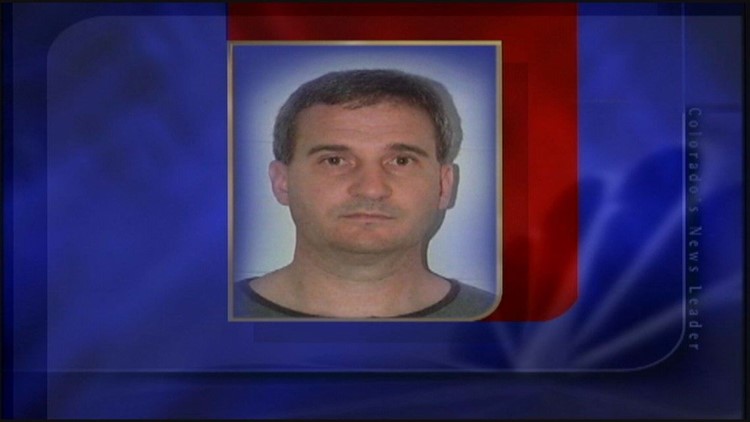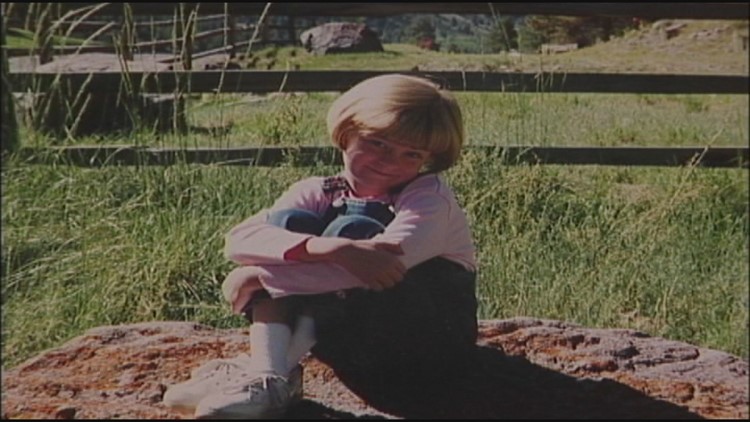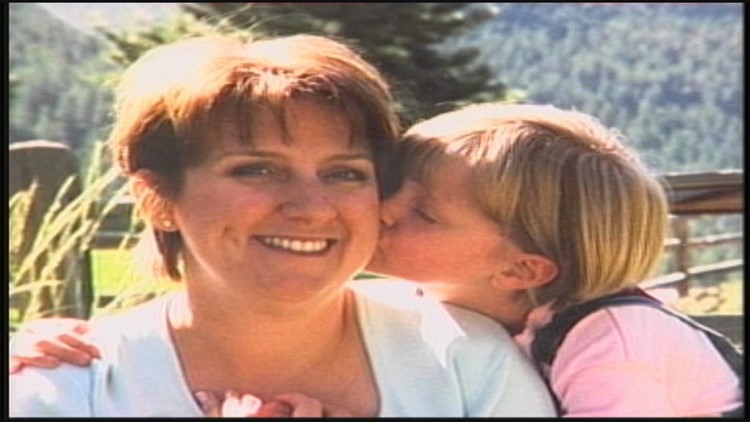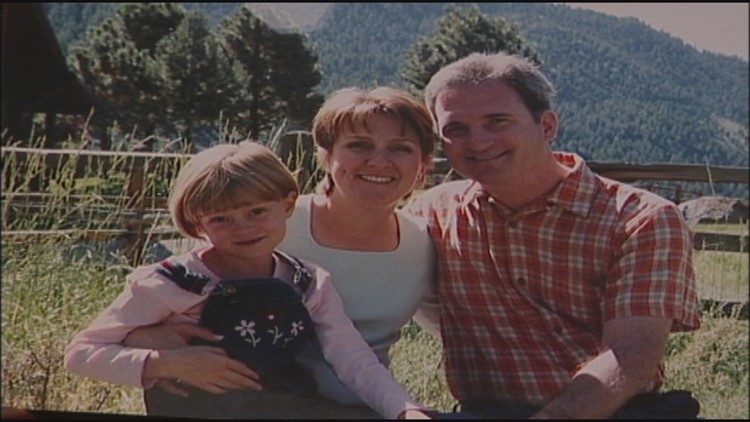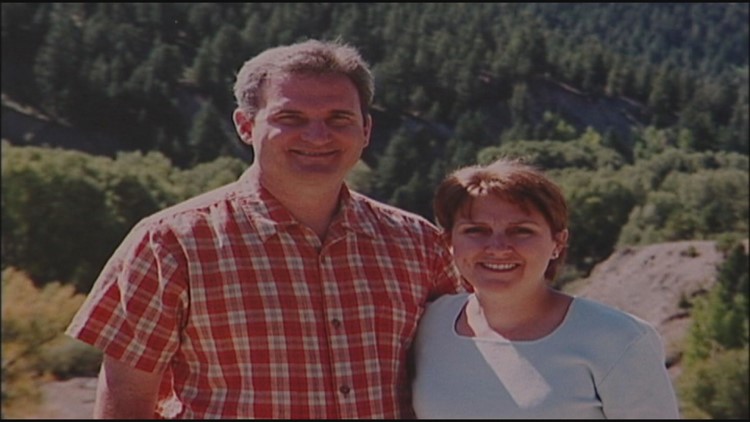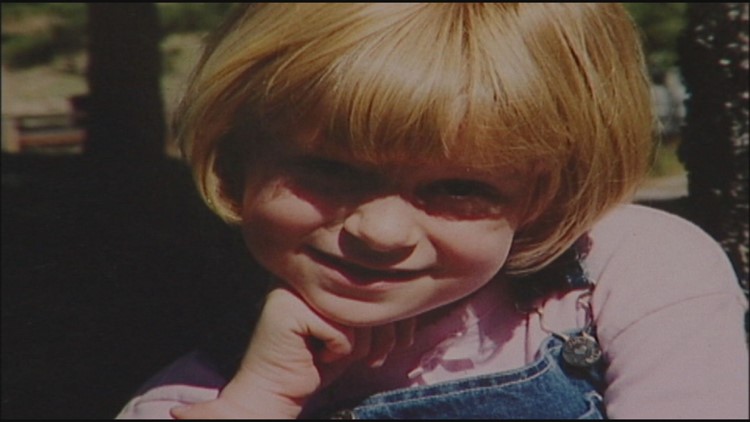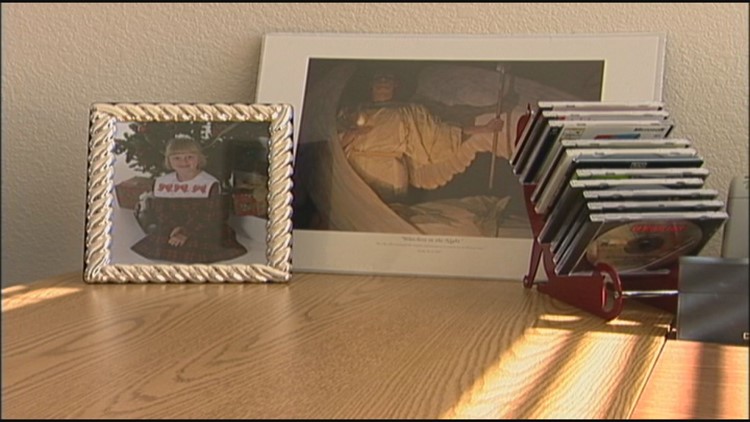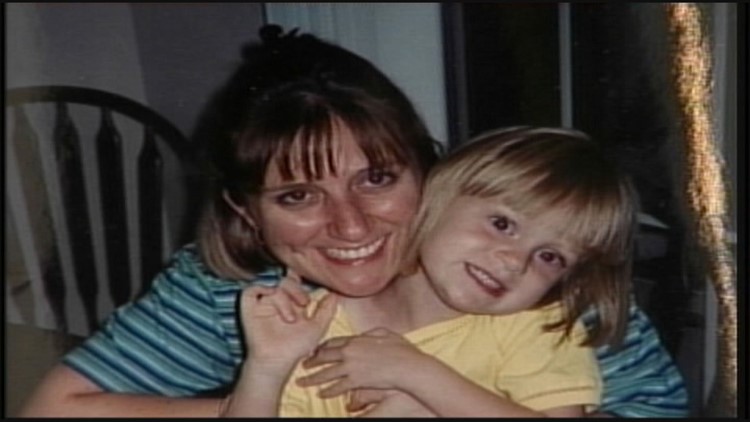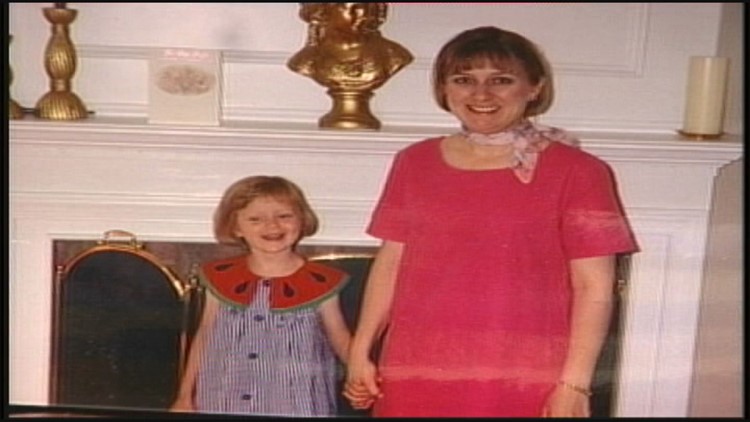Nov. 13, 2001 was “Teddy Bear Tuesday” in Abby Blagg’s first grade class, but she never showed up.
Instead, the 6-year-old’s desk sat empty for weeks before her grandparents finally picked up her school supplies. To this day, Abby Blagg has never been found.
“Because I didn’t know where she was, I didn’t move her desk,” her teacher Jackie Fasnacht said in a Jefferson County courtroom more than 16 years later. “It was hard.”
Fasnacht was one of five witnesses called to the stand Tuesday during the first day of Michael Blagg’s second trial for the murder of his 34-year-old wife Jennifer Blagg.
The now-55-year-old was found guilty of first-degree murder in 2004, but that conviction was thrown out after a juror was found to have lied on her questionnaire about being a victim of domestic violence.
The case has since been moved to Jefferson County due to its notoriety on the Western Slope.
Photos of Michael, Jennifer and Abby Blagg
RECAP OF OPENING STATEMENTS: 'It's always the husband': Opening statements in the case against Michael Blagg
Prosecutors say Michael Blagg killed his wife in their home just outside of Grand Junction while she was sleeping, loaded her body into the family minivan and took her to his workplace, Ametek-Dixon. There, the Mesa County District Attorney’s Office said, he threw her body into a dumpster.
Investigators found Jennifer Blagg’s body in the Mesa County landfill on June 4, 2002. Michael Blagg was arrested two days later.
His public defenders say a child predator was responsible for Jennifer Blagg’s death and her daughter’s disappearance, and that Michael Blagg was unfairly targeted by an investigation that simply assumed it’s “always the husband.”
No one saw Michael Blagg kill his wife. No one saw a child predator kidnap Abby.
What both sides can agree on is that at 4:21 p.m. on Nov. 13, 2001, Michael Blagg called 911 and said that he came home to find a pool of blood of his wife’s bed and numerous items in her bedroom in disarray, including a jewelry box thrown on the floor, its contents strewn on the carpet.
There was no trace of Abby. Over the course of that day, Michael Blagg said he tried to call his wife multiple times but that she didn’t answer. It wasn’t until he got home that he said his worst fears were confirmed.
Michael Blagg’s ensuing 911 call was played in full at the end of the defense’s hour-long opening statement. In the call, the clearly distraught Blagg is told to breathe deeply multiple times and wait for deputies to arrive.
Mesa County Sgt. Tim Orr was one of those deputies more than 17 years ago. He was also called to testify during the 2004 trial.
He said when he pulled up to the Blagg home in a quiet Mesa County subdivision the afternoon of Nov. 13, 2001, Michael Blagg was sitting outside.
“We asked if he was OK, he indicated no,” Orr said. “He wasn’t crying or anything. He was just standing on the porch.”
Orr said he and another deputy went inside the home with their guns drawn. They were partially looking for bodies, he said, but they were also looking to see if the perpetrator was inside.
They ultimately spent eight minutes in the Blagg home before returning outside. Sgt. John Coleman, their boss, had arrived by then, and Michael Blagg was being examined in an ambulance.
Coleman was also called to the stand and said he also went into the two-story Blagg house and decided it was time to call in detectives.
Geraldine Earthman, a K-9 officer for the Grand Junction Police Department, was one of the investigators who was brought in.
On the witness stand, Earthman said she was off-duty the day Michael Blagg reported his wife and daughter missing, but came to the crime scene anyway with her K-9 Zara.
Zara used a scent from a pair of Jennifer and Abby Blagg’s clothes and found some trace of them near the garage door. She didn’t alert Earthman to scents anywhere else on the property, she said.
During cross-examination, the defense was quick to establish that Jennifer and Abby Blagg used the garage to enter and exit the home every day before they disappeared — and that it’s possible this is what Zara smelled.
Earthman never actually went inside the Blagg house, but Glade Johnson did.
He was a Mesa County deputy who conducted neighborhood interviews following Jennifer and Abby Blagg’s disappearance and who also, just before 11 p.m. on Nov. 13, 2001, recorded crime scene video of the Blagg home.
The hour-long video was played in full in court on Tuesday afternoon, with narration provided by Johnson.
Much of the video paints a scene of a normal home. A pink backpack and mail are on the floor of the entryway. There’s laundry in the washer, and bottles of water sitting on the countertop in the kitchen.
But in Jennifer Blagg’s bedroom, there was a massive bloodstain on the bed, and a fan turned on high. Investigators tried not to trod on the items spilled onto the floor.
Abby Blagg’s bed was unmade, but there was no trace of blood or any sort of struggle. Her clothes for school were laid out and unworn.
Johnson detailed the painstaking level of attention he and other deputies took to not compromise the crime scene.
But the defense argues there were flaws: that they moved a clothes rack to reach a closet, and that they videotaped water in the entryway that no one else had noticed.
They also removed a sock from the answering machine on the bedside table right before the spot where Jennifer Blagg was killed.
Johnson was also part of the team that conducted a mannequin test in an attempt to test where Abby and Jennifer Blagg’s bodies would have washed up had they been thrown in the river.
He testified that Jennifer Blagg’s body would have sunk and that Abby’s would have washed up just a few yards away.
Johnson will return to the stand for cross-examination on Wednesday morning.
9NEWS has a producer in the courtroom and will post updates on the case on 9NEWS.com during breaks and at the conclusion of testimony.


